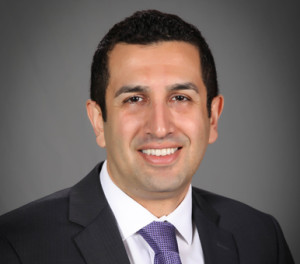 Roozbeh Jafari, a biomedical engineer whose research focuses on wearable computer design and signal processing, has joined the Center for Remote Health Technologies and Systems (CRHTS) at Texas A&M University.
Roozbeh Jafari, a biomedical engineer whose research focuses on wearable computer design and signal processing, has joined the Center for Remote Health Technologies and Systems (CRHTS) at Texas A&M University.
As a researcher in the center, which is a member of the Texas A&M Engineering Experiment Station (TEES), Jafari brings expertise in wearable computer design and signal processing with applications in health care, wellness and enhancing productivity and safety of users. His research has been funded by the National Science Foundation, National Institutes of Health, the U.S. Army’s Telemedicine & Advanced Technology Research Center, the U.S. Air Force Research Laboratory, the Air Force Office of Scientific Research, The Defense Advanced Research Projects Agency, SRC and industry.
Jafari received his Master of Science and Ph.D. in computer science from the University of California, Los Angeles prior to serving in a postdoctoral position in electrical engineering and computer sciences at the University of California, Berkeley.
In addition to his research appointment at CRHTS, Jafari is associate professor in the departments of Biomedical Engineering, Computer Science and Engineering and Electrical and Computer Engineering at Texas A&M.
About the Center for Remote Health Technologies and Systems (CRHTS)
The Center for Remote Health Technologies and Systems is designing and developing advanced health technologies and systems to enable healthy living through health monitoring and disease diagnosis, management and prevention. The center’s mission is to identify and overcome the unmet needs of patients and health care providers through the development of breakthrough remote health care devices, biosignal mapping algorithms, remote health analytics and information systems that will improve access, enhance quality, and reduce the cost of health care.
About the Texas A&M Engineering Experiment Station (TEES)
As an engineering research agency of Texas, TEES performs quality research driven by world problems; strengthens and expands the state’s workforce through educational partnerships and training; and develops and transfers technology to industry. TEES partners with academic institutions, governmental agencies, industries and communities to solve problems to help improve the quality of life, promote economic development and enhance educational systems. TEES, a member of the Texas A&M University System is in its 100th year of engineering solutions.